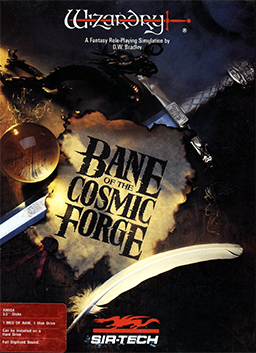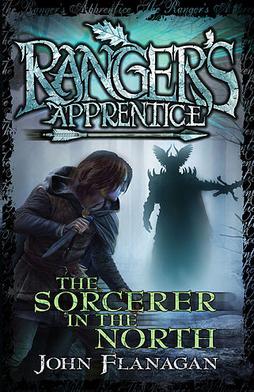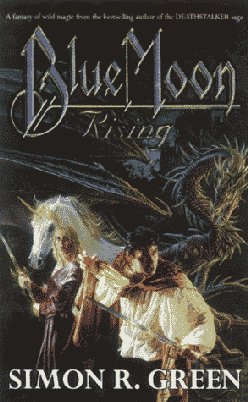Related Research Articles

The Dark Tower: The Gunslinger is a dark-fantasy novel by American author Stephen King. It is the first volume in his Dark Tower series. The Gunslinger was first published in 1982 as a fix-up novel, joining five short stories that had been published between 1978 and 1981. King substantially revised the novel in 2003; this version has remained in print ever since, with the subtitle "RESUMPTION". The story centers Roland Deschain, the last gunslinger, who has been chasing his adversary, "the man in black," for many years. The novel fuses Western fiction with fantasy, science fiction, and horror, following Roland's trek through a vast desert and beyond in search of the man in black. Roland meets several people along his journey, including a boy named Jake, who travels with him part of the way.
"The Howling Man" is episode 41 of the American television anthology series The Twilight Zone. It originally aired on November 4, 1960 on CBS. The episode was based on the short story by Charles Beaumont published in the November 1959 issue of Rogue magazine.
The Phantom Tollbooth is a children's fantasy adventure novel written by Norton Juster, with illustrations by Jules Feiffer, first published in 1961. The story follows a bored young boy named Milo who unexpectedly receives a magic tollbooth that transports him to the once prosperous, but now troubled, Kingdom of Wisdom. Along with a dog named Tock and the Humbug, Milo goes on a quest to the Castle in the Air seeking the kingdom's two exiled princesses, named Rhyme and Reason. As Milo learns valuable lessons, he finds a love of learning in a story full of puns and wordplay, such as exploring the literal meanings of idioms.

Howl's Moving Castle is a fantasy novel by Welsh author Diana Wynne Jones, first published in 1986 by Greenwillow Books of New York. It was a runner-up for the annual Boston Globe–Horn Book Award, and won the Phoenix Award twenty years later. It was adapted into an animated film of the same name in 2004, which was nominated for the Academy Award for Best Animated Feature.

Behind the Green Door is a 1972 American pornographic film, widely considered one of the genre's "classic" pictures and one of the films that ushered in the Golden Age of Porn (1969–1984). Featuring Marilyn Chambers, who became a mainstream celebrity, it was one of the first hardcore films widely released in the United States and the feature-length directorial debut of the Mitchell brothers.

"The Twelve Dancing Princesses" is a German fairy tale collected by the Brothers Grimm and published in Grimm's Fairy Tales in 1815. It is of Aarne-Thompson type 306.

Wizardry VI: Bane of the Cosmic Forge is the 6th title in the Wizardry series of role-playing video games. It was the first in the trilogy surrounding the Dark Savant, which was followed by Wizardry VII: Crusaders of the Dark Savant and Wizardry 8. It was developed by Sir-Tech Software, Inc. and was released on the Amiga and DOS platforms in 1990 by the same company, and for the Super Famicom in Japan in 1995 by ASCII.
"Through the Looking Glass" is the 21st episode of the second season of the American television series Angel. Written and directed by Tim Minear, it was originally broadcast on May 15, 2001 on the WB network. It is the second episode in a three-part arc.

Secret passages, also commonly referred to as hidden passages or secret tunnels, are hidden routes used for stealthy travel, escape, or movement of people and goods. They are sometimes inside buildings leading to secret rooms.

The Sorcerer in the North is the fifth book in the Ranger's Apprentice series by Australian author John Flanagan. It was released in Australia on 4 November 2006 and in the United States on 4 November 2008.

Ys are two different anime series, released as original video animation series, both of which are based on the video game series Ys. The first series spans seven episodes and covers the general plotline of the first game of the series, Ys I: Ancient Ys Vanished. The plot centers on Adol Christin as he journeys to the island of Esteria in search of adventure. Upon arrival, he learns that a dark priest known as Dark Fact has been tearing the island apart in search of six mystical tomes of power, the Books of Ys.

Abby in Wonderland is a 2008 American musical fantasy film that adapts Lewis Carroll's Alice in Wonderland with the Muppets of Sesame Street. Abby Cadabby stars in the role of Alice. The feature-length adventure was released on DVD by Genius Products on September 30, 2008. In addition to receiving a DVD release, the film received a limited theatrical run in September 2008 through the Kidtoons family matinee series, and was aired on PBS Kids Feast of Favorites during the week of Thanksgiving 2008. It was aired again on December 29, 2008 on local PBS stations.
Leonce and Lena is a play by German dramatist Georg Büchner (1813–1837); while considered a comedy, it is a satire veiled in humor. Written in the spring of 1836 for a competition 'for the best one- or two-act comedy in prose or verse' sponsored by Stuttgart publisher Cotta. However, Büchner missed the submission deadline and the play was returned unread. It was first performed almost 60 years later, on May 31, 1895, in an outdoor performance by the Munich Company Intimes Theater, directed by Ernst von Wolzogen and with the involvement of Max Halbe and Oskar Panizza, illustrating the fact that Büchner only gained prominence as a writer in the 20th century.

Blue Moon Rising is a fantasy novel by British author, Simon R. Green. The first in a series of four books in the Forest Kingdom series with the main protagonists appearing in six books in the Hawk & Fisher series by Green.

Hell's Heroes is the tenth and final book in Darren Shan's The Demonata series.

In Disney theme parks, the utilidor system is a system of some of the world's largest utility tunnels, mainly for Walt Disney World's Magic Kingdom in Florida. The utilidors, short for utility corridors, are a part of Disney's "backstage" (behind-the-scenes) area. They allow Disney employees to perform park support operations, such as trash removal, and for costumed characters to quickly reach their destinations on the surface out of the sight of guests to avoid ruining the illusion that is being created.

Klaus is a fictional superhero created by writer Grant Morrison and artist Dan Mora. Debuting originally in a seven-issue comic book mini-series published in 2015 and 2016 by Boom! Studios, the character has gone on to star in a number of other stories since. The original miniseries is styled as a sprawling superhero origin story, akin to Batman: Year One, re-imagining Santa Claus as a wild shaman of the winter in the 16th century. Drawing on folklore, westerns, and epic fantasy, Morrison and Mora intended to craft a brand-new sexy Santa for the modern age. The origin chronicles Klaus, a wild man of the winter and the forests on his mission with his pet white wolf Lilli, to restore joy to the sacred holiday of Yuletide. Set in the totalitarian town of Grimsvig, wherein joy is forbidden and Yuletide is outlawed, the series casts Santa Claus as a V for Vendetta and Robin Hood-esque figure, fighting its fascistic Lord Magnus, and the greater demonic force behind him.
Yasmin and the Serpent Prince is a Persian folktale published in 1974 by author Forough Hekmat. It is related to the international cycle of the Animal as Bridegroom or The Search for the Lost Husband, in that a human princess marries a supernatural husband or man in animal form, loses him and has to seek him out.
The Beautiful Palace East of the Sun and North of the Earth is a Swedish folktale collected from Smaland by Swedish folktale collectors George Stephens and Gunnar Olof Hyltén-Cavallius. It features versions of the swan maiden, a mythic female character that alternates between human and animal shapes.
Kibaraka is a folktale sourced from the Swahili, published in late 19th century. Linguist Jan Knappert published a very similar tale with the title The Giant Horse, wherein the protagonist is also named Kibaraka. In both, a youth named Kibaraka gets entangled with a cannibal sorcerer and escapes thanks to a giant horse's help; also with the giant horse's help, he reaches another city, where he marries a princess and performs heroic feats.
References
- 1 2 Cohen, Nadia (30 November 2017). The Extraordinary Life of A. A. Milne. Pen & Sword Books. ISBN 978-1526704481 . Retrieved 22 September 2022.
- ↑ Bloom, Ken (18 October 2013). Routledge Guide to Broadway. Taylor & Francis. ISBN 978-1135871161 . Retrieved 22 September 2022.
- ↑ Hischak, Thomas (19 June 2019). 1927: A Day-by-Day Chronicle of the Jazz Age's Greatest Year. Rowman & Littlefield Publishers. ISBN 978-1538112786 . Retrieved 22 September 2022.
- ↑ "In the London Theatres". Waikato Times. 11 May 1929. Retrieved 22 September 2022.
- ↑ Wullschläger, Jackie (1995). Inventing Wonderland: The Lives and Fantasies of Lewis Carroll, Edward Lear, J. M. Barrie, Kenneth Grahame and A. A. Milne. Methuen. p. 194. ISBN 0413678407.
- ↑ "The Ivory Door". The New Statesman. 33. 5 October 1929.
- ↑ "The Ivory Door". The New Age. 44. 1928. Retrieved 22 September 2022.